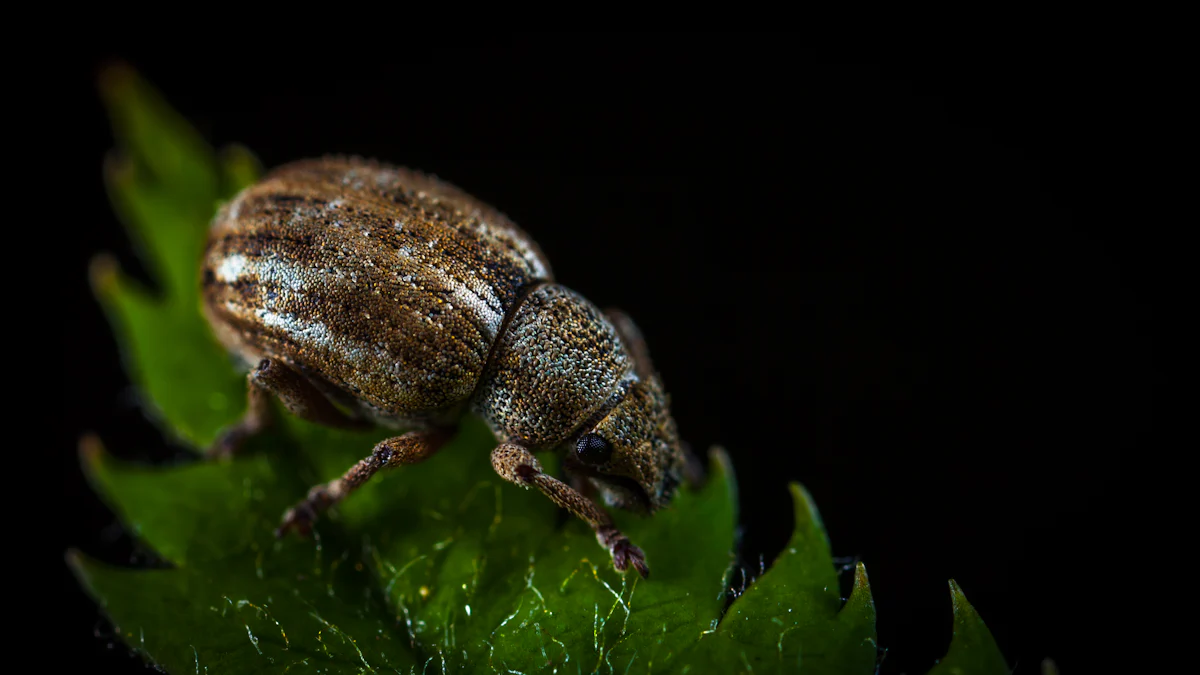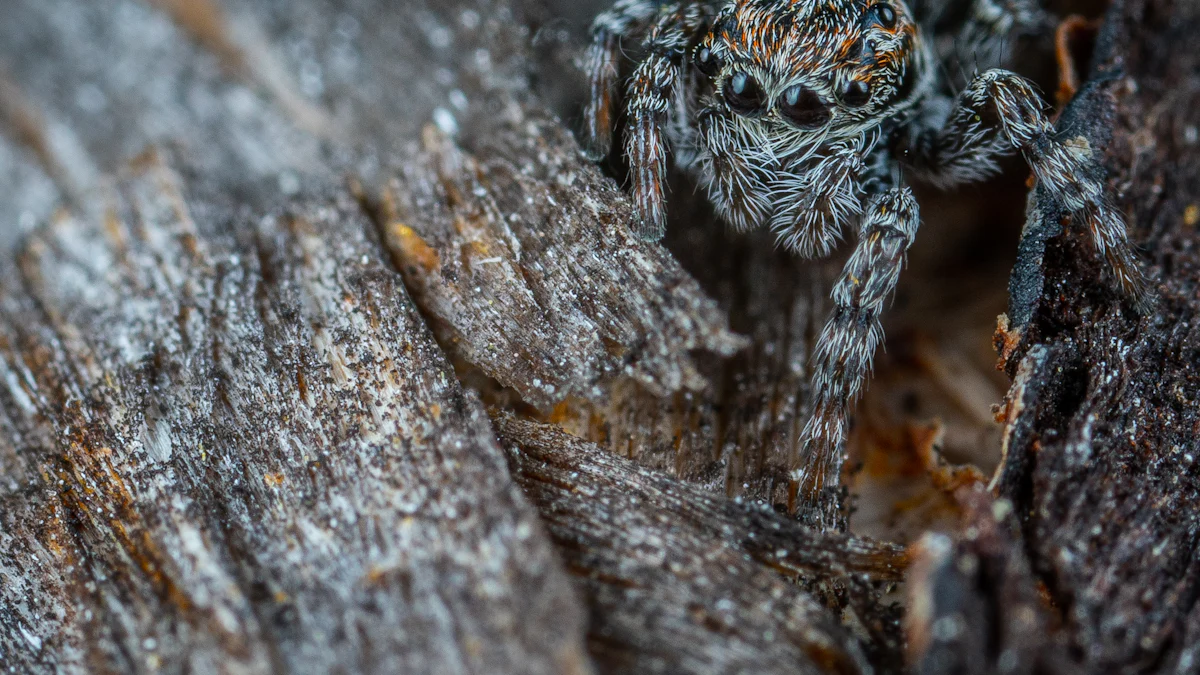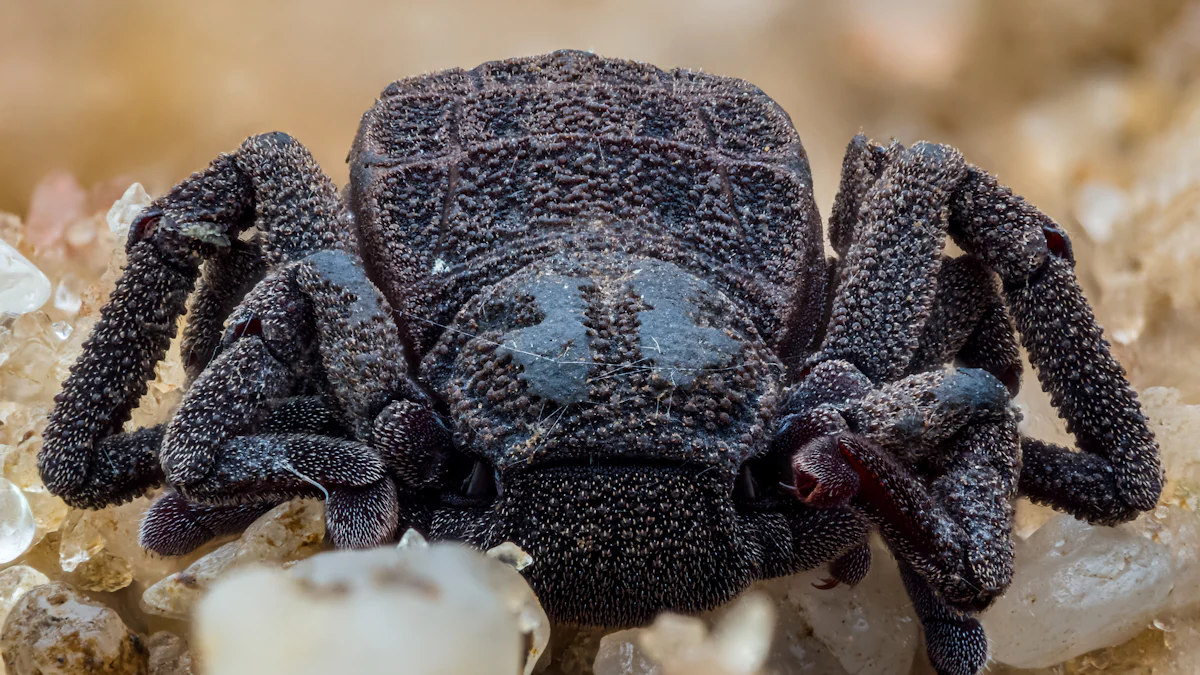
Have you ever thought about how your choices impact the planet? Organic dried mealworms offer a game-changing solution for sustainable animal protein. These tiny insects pack a punch with their high nutritional value while leaving a minimal environmental footprint. Unlike traditional protein sources, mealworms require less water, land, and feed to produce. They even thrive on organic byproducts, turning waste into valuable nutrition. With their ability to reduce greenhouse gas emissions and fit into eco-friendly farming systems, mealworms are not just food—they’re a step toward a greener future.
Key Takeaways
- Organic dried mealworms are a sustainable protein source, requiring significantly less water, land, and feed compared to traditional livestock.
- These insects help reduce food waste by converting organic byproducts into high-quality protein, promoting a circular economy.
- Mealworms are packed with essential nutrients, offering a complete protein profile that supports animal health and growth.
- Choosing organic dried mealworms ensures that animals receive feed free from harmful additives and chemicals, promoting their overall well-being.
- Incorporating mealworms into pet and livestock diets enhances nutrition while supporting eco-friendly farming practices.
- Mealworms can be integrated into aquaculture systems, providing a sustainable alternative to traditional fishmeal and reducing pressure on marine ecosystems.
- By opting for organic mealworms, you contribute to environmentally responsible farming practices that prioritize the health of the planet.
Environmental Sustainability of Organic Dried Mealworms

Minimal Resource Requirements
Have you ever wondered how much water and land go into producing traditional protein sources? With organic dried mealworms, the answer is surprisingly little. These tiny insects thrive in compact spaces, making them perfect for vertical farming systems. Unlike livestock, which demands vast amounts of land and feed, mealworms grow efficiently in controlled environments. They require minimal water, reducing strain on one of our planet’s most precious resources.
Mealworm farming also produces fewer greenhouse gas emissions compared to raising cattle or poultry. You might not realize it, but livestock farming contributes significantly to global methane emissions. By choosing mealworms, you’re supporting a protein source that’s kinder to the environment. Their ability to grow on organic byproducts further enhances their sustainability, turning what would otherwise be waste into valuable nutrition.
Contribution to Waste Reduction
Did you know mealworms can help tackle food waste? These insects have an incredible ability to convert organic waste into high-quality protein. Leftover fruits, vegetables, and other organic materials that would typically end up in landfills become a nutritious diet for mealworms. This process not only reduces waste but also creates a circular system where nothing goes to waste.
By incorporating mealworms into animal feed, you’re contributing to a more sustainable food chain. Traditional farming often generates significant byproducts that go unused. Mealworms, however, thrive on these byproducts, ensuring that resources are utilized to their fullest potential. This approach not only minimizes waste but also supports a more eco-friendly way of producing animal protein.
“Insect rearing produces less greenhouse gas and ammonia emissions, requires less water than conventional protein sources, and can be produced in vertical farming systems, leading to a lower requirement of space.”
Organic dried mealworms represent a shift toward smarter, more sustainable farming practices. By embracing this innovative protein source, you’re helping to reduce environmental impact while supporting a greener future.
Nutritional Benefits of Organic Dried Mealworms

High Protein and Amino Acid Content
Protein plays a vital role in animal health, and organic dried mealworms deliver it in abundance. With a protein content ranging from 48% to 54%, these tiny powerhouses surpass many traditional protein sources. Whether you’re feeding pets, livestock, or aquaculture species, mealworms provide a reliable and nutrient-dense option.
What makes their protein even more impressive is its quality. Mealworms contain all eight essential amino acids that animals need for growth, muscle repair, and overall well-being. These amino acids, often missing or imbalanced in other protein sources, make mealworms a complete protein. By incorporating them into animal diets, you ensure optimal nutrition without compromise.
“Dried mealworms offer a well-balanced amino acid profile, including essential amino acids crucial for health.”
If you’re looking for a protein source that checks all the boxes—high content, excellent quality, and sustainability—mealworms are the answer. They provide the building blocks animals need to thrive while supporting eco-friendly farming practices.
Additional Nutritional Advantages
Organic dried mealworms go beyond just protein. They are packed with essential vitamins and minerals that contribute to a balanced diet. These include potassium, calcium, magnesium, phosphorus, and iron, which support strong bones, healthy muscles, and robust immune systems. Trace elements like copper, zinc, manganese, and selenium further enhance their nutritional profile, promoting overall health and vitality.
Mealworms also contain vitamins B1, B2, E, and D, which play critical roles in energy production, skin health, and bone development. Unlike many traditional protein sources, mealworms offer this wide array of nutrients in a single package. This makes them an efficient and versatile choice for animal feed.
Another standout feature is their natural fat content. Mealworms provide healthy fats that supply energy and support coat and skin health in animals. Their natural fibers aid digestion, ensuring animals absorb nutrients effectively. By choosing mealworms, you’re not just meeting basic dietary needs—you’re providing a comprehensive nutritional boost.
“Dried mealworms are rich in minerals, trace elements, and vitamins, offering higher levels of key nutrients compared to traditional animal products.”
When you add mealworms to animal diets, you’re giving them more than just food. You’re offering a nutrient-packed solution that supports their health from the inside out.
Importance of Organic Certification for Mealworms
Ensuring Sustainable Farming Practices
When you choose organic dried mealworms, you’re supporting farming practices that prioritize sustainability. Organic certification ensures that mealworms are raised using organic-certified grains or grain waste products, which eliminates the use of synthetic pesticides and fertilizers. This approach not only protects the environment but also promotes healthier ecosystems. By relying on organic inputs, mealworm farming reduces the risk of harmful chemicals entering the food chain.
Organic certification also encourages the use of innovative systems like aquaponics. For example, mealworms can be grown alongside fish in integrated systems where organic waste from one process supports the other. This creates a closed-loop system that minimizes waste and maximizes resource efficiency. These sustainable methods align with global efforts to reduce the environmental impact of food production.
“Mealworm production using organic certified grains supports sustainable farming practices and integrates well with eco-friendly systems like aquaponics.”
By choosing organic-certified mealworms, you’re contributing to a farming system that values the planet’s health as much as its productivity. This ensures that the protein source you rely on is both ethical and environmentally responsible.
Benefits for Animal Health and Safety
Organic certification doesn’t just benefit the environment—it also ensures the health and safety of the animals consuming these mealworms. Certified organic mealworms are free from harmful additives, antibiotics, and synthetic chemicals. This means you can trust that the feed you’re providing is pure and safe for your animals.
Mealworms raised under organic standards also offer superior nutritional quality. Studies show that their protein content and amino acid profile often surpass traditional feed sources. This makes them an excellent choice for promoting growth, muscle development, and overall well-being in animals. Additionally, the absence of chemical residues in organic mealworms reduces the risk of long-term health issues in livestock, pets, and aquaculture species.
“Livestock fed mealworms raised on organic-certified grains benefit from a cleaner, safer, and more nutritious protein source.”
When you opt for organic dried mealworms, you’re not just feeding your animals—you’re investing in their health and safety. This choice ensures that they receive high-quality nutrition without exposure to harmful substances.
Practical Applications of Organic Dried Mealworms in Animal Feed
Use in Pet Food
If you’re looking for a nutritious and natural addition to your pet’s diet, organic dried mealworms are an excellent choice. These protein-packed insects provide a balanced blend of nutrients that support your pet’s overall health. Whether you have birds, reptiles, or small mammals, mealworms cater to a wide variety of pets. Their high protein content promotes muscle growth and energy, while their healthy fats contribute to shiny coats and vibrant feathers.
Mealworms also encourage natural foraging behavior in pets. For example, birds and small mammals enjoy the challenge of searching for these tasty treats, which keeps them mentally stimulated and physically active. This enrichment improves their well-being and makes mealtime more engaging. Plus, mealworms are non-GMO and free from harmful additives, so you can feel confident about what you’re feeding your pets.
“Dried mealworms are a fantastic source of protein, making them an ideal dietary supplement for a wide range of pets.”
Adding mealworms to your pet’s diet isn’t just about nutrition—it’s about enhancing their quality of life.
Use in Livestock Feed
For livestock farmers, organic dried mealworms offer a sustainable and efficient protein source. Chickens, for instance, thrive on mealworms, which boost their health and productivity. The protein and amino acids in mealworms contribute to stronger eggshells and better egg production. Additionally, the natural fats and fibers in mealworms improve digestion and overall vitality in poultry.
Livestock like pigs and goats also benefit from mealworms. These insects provide a nutrient-dense supplement that supports growth and muscle development. Unlike traditional feed options, mealworms are environmentally friendly and require fewer resources to produce. By incorporating them into livestock diets, you’re not only improving animal health but also reducing the environmental impact of farming.
“Mealworms are a natural, high-protein food source that is considered environmentally friendly compared to soy and fish meals.”
Switching to mealworms for livestock feed is a step toward more sustainable and productive farming practices.
Use in Aquaculture
Aquaculture systems can greatly benefit from the inclusion of organic dried mealworms. Fish and other aquatic species require high-quality protein for growth and reproduction, and mealworms deliver just that. Their well-balanced amino acid profile ensures optimal nutrition, while their natural fats provide the energy needed for active aquatic life.
Mealworms also align with sustainable aquaculture practices. They can be used as a replacement for fishmeal, which is often sourced unsustainably. By choosing mealworms, you’re supporting a protein source that reduces pressure on marine ecosystems. Additionally, mealworm farming integrates well with aquaponics systems, creating a closed-loop process where waste is minimized, and resources are maximized.
“The use of processed animal protein derived from insects, including mealworms, is authorized for feed in aquaculture systems.”
Incorporating mealworms into aquaculture feed not only benefits aquatic species but also contributes to a more sustainable seafood industry.
Organic dried mealworms are more than just a protein source—they’re a step toward a sustainable future. Their nutrient-rich profile, packed with high-quality protein, essential amino acids, and vital vitamins, makes them a powerhouse for animal nutrition. By choosing mealworms, you actively support eco-friendly farming practices that reduce waste and greenhouse gas emissions. These versatile insects transform organic byproducts into valuable feed, promoting a circular economy. As a certified organic product, they ensure safety and quality, making them a reliable choice for animals. Embrace this innovative solution and contribute to a greener, healthier planet.
FAQ
What are dried mealworms used for?
Dried mealworms serve as a nutritious snack for a variety of animals. You can use them to feed chickens, birds, reptiles, amphibians, fish, and even small mammals. Packed with protein, fiber, healthy fats, and essential amino acids, they provide a balanced diet that supports growth and vitality.
“Dried mealworms are a popular and highly nutritious food source for animals, offering a rich blend of nutrients.”
Whether you’re raising livestock or caring for pets, dried mealworms make an excellent addition to their diet.
What animals can benefit from dried mealworms?
A wide range of animals can enjoy the benefits of dried mealworms. Poultry, wild birds, fish, hedgehogs, turtles, lizards, squirrels, sugar gliders, and other small mammals thrive on this protein-rich food. Their versatility makes them a go-to option for animal lovers and farmers alike.
If you’re looking for a single feed option that caters to multiple species, dried mealworms are a perfect choice.
Are dried mealworms nutritious for birds?
Yes, dried mealworms are incredibly nutritious for birds. They offer a balanced mix of protein, fat, and fiber, which promotes healthy feathers, energy, and overall vitality. Birds love the taste, and you’ll notice their improved health and activity levels after adding mealworms to their diet.
“Dried mealworms provide a blended balance of nutrients that support healthy, vigorous birds.”
For bird enthusiasts, mealworms are a must-have in your feeding routine.
What is the nutritional value of dried mealworms?
Dried mealworms boast an impressive nutritional profile. They contain high levels of protein, essential amino acids, healthy fats, and fiber. Additionally, they are rich in vitamins and minerals like potassium, calcium, and magnesium, which support overall health.
“With their nutrient-dense composition, dried mealworms are not just a wholesome food source but also a versatile ingredient for animal nutrition.”
By incorporating mealworms into animal diets, you ensure they receive a well-rounded and nutrient-packed meal.
Can dried mealworms help reduce food waste?
Absolutely! Mealworms have the unique ability to convert organic waste into high-quality protein. Leftover fruits, vegetables, and other organic materials that would otherwise go to waste become a valuable food source for mealworms. This process reduces waste and promotes sustainability.
By choosing dried mealworms, you’re supporting a circular food system where nothing goes to waste.
Are dried mealworms safe for pets?
Yes, dried mealworms are safe for pets. They are non-GMO and free from harmful additives, making them a natural and healthy choice. Whether you have birds, reptiles, or small mammals, mealworms provide a nutritious treat that supports their overall well-being.
If you want to give your pets a safe and enriching snack, dried mealworms are an excellent option.
How should I store dried mealworms?
To keep dried mealworms fresh, store them in a cool, dry place. Use an airtight container to prevent moisture and pests from getting in. Proper storage ensures that the mealworms retain their nutritional value and remain safe for your animals to eat.
“Storing dried mealworms correctly helps maintain their quality and extends their shelf life.”
By following these simple steps, you can make the most of your mealworm supply.
Can I use dried mealworms for aquaculture?
Yes, dried mealworms are an excellent protein source for aquaculture. Fish and other aquatic species benefit from their high-quality protein and balanced amino acid profile. Mealworms also serve as a sustainable alternative to traditional fishmeal, reducing the environmental impact of aquaculture.
If you’re involved in aquaculture, mealworms offer a reliable and eco-friendly feed option.
Why choose organic dried mealworms over regular ones?
Organic dried mealworms come with added benefits. They are raised on organic-certified grains, ensuring they are free from synthetic pesticides and chemicals. This makes them safer for animals and better for the environment. Organic certification also guarantees sustainable farming practices, so you can trust the quality of the product.
By choosing organic, you’re prioritizing both animal health and environmental responsibility.
How do dried mealworms compare to traditional protein sources?
Dried mealworms outperform many traditional protein sources in terms of sustainability and nutrition. They require fewer resources to produce, emit less greenhouse gas, and offer a higher protein content. Their rich nutritional profile, including essential amino acids and vitamins, makes them a superior choice for animal feed.
“Mealworms are a sustainable and nutrient-dense alternative to conventional protein sources like soy and fishmeal.”
Switching to mealworms supports eco-friendly practices while providing top-notch nutrition for animals.


